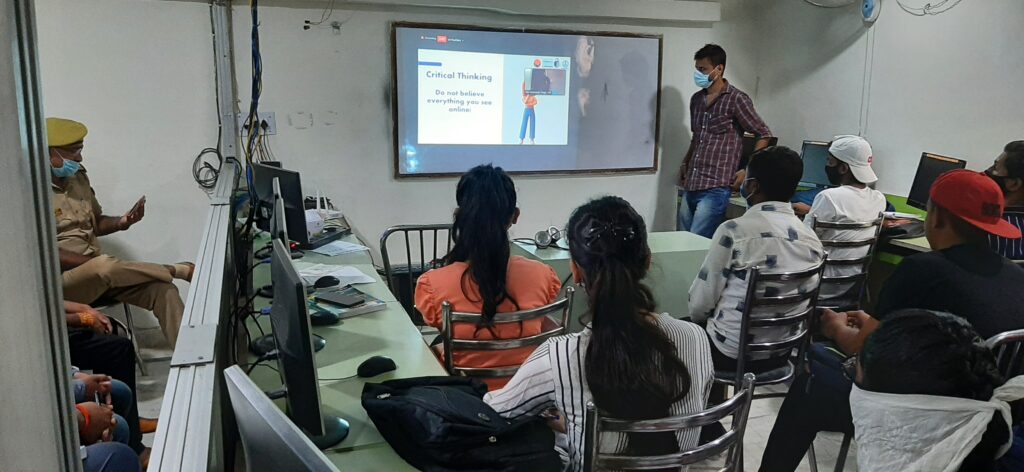
DOEACC ‘O’ level
Gone are the days when medical and engineering were the only best options for a promising and fulfilling career. Ever since the computer age began, there are multiple new career opportunities for the young generation with a technical bent of mind. Moreover, there are various computer-related courses to cater to the demand of students seeking courses to hone up their computer and programming skills. Department of Electronics and Accreditation of Computer Courses (DOEACC) ‘O’ level course is one such course and the career after DOEACC ‘O’ level can be exciting and fulfilling DOEACC comes under the Ministry of Human Resources Development of the Indian government. It offers various levels of courses related to computer applications and Information Technology (IT). DOEACC ‘O’ level is the foundation course and students can increase their knowledge on the subject by continuing to the DOEACC ‘A’ level course.
Eligibility: 1) The general eligibility criteria to pursue the NIELIT (DOEACC) ‘O’ Level certification states that candidates need to complete their 10 + 2 education or possess ITI Certificate of one year after class 10 followed in each case by an accredited ‘O’ Level Course.
OR
Possess a Government recognized polytechnic engineering diploma after completing class 10 followed by an accredited ‘O’ level course concurrently during the third year of the said polytechnic engineering diploma course.
2) For direct applicants, 10 + 2 or ITI Certificate (one year) after class 10 followed in each case, by one-year relevant experience. (Relevant experience is job experience in IT, including teaching in a recognized institution as a faculty member, excludes coaching.)
DOCUMENT REQUIRED:-10,12 MARKSHEET,2 PASSPORTSIZE WHITE BACKGROND IMAGES,ADHAR CARD .
Duration : 1 Year- (TWO Semesters of 6 months)
Job roles after DOEACC ‘O’ level
- EDP Specialist: It stands for Electronic Data Processing (EDP) specialist. The job responsibilities include supervision of large-scale computer systems and their equipment like peripheral equipment, printers and tape drives. The EDP specialist works on the special projects assigned to them and also administer routine computer support tasks. They must keep themselves updated with cutting edge technology and should have a thorough understanding of software, hardware and applications. The regular responsibilities include monitoring and maintaining the mainframe computer systems and consulting users, technicians and management to find how to use information systems in the best possible way to achieve the organization goals. The professional must also have excellent oral and written communication skills. The average base pay of an EDP specialist in India is ₹21,652 per month.
- Web Developer: At a time when all businesses rely on digital presence, web developers have immense opportunities. It offers an exciting career option for interested candidates. The job responsibilities include writing efficient, testable and well-designed codes, creating the user interfaces or website layout using HTML/CSS practices and integrating data from various databases and back-end services. The web developers are not only responsible for creating but maintaining, expanding and scaling the website. They must coordinate well with the web designers, and also create and maintain software documentation.The ideal candidate must have the knowledge of Search Engine Optimization (SEO) process and should have problem-solving skills. The candidate must be well versed with web application development, Object-Oriented Programming, and relational database systems. The average salary of a web developer in India is Rs. 308,040 per annum.
- Junior Programmers:They are entry-level software developers who assist the software development team with all aspects of coding and design. The main job responsibilities include writing basic code, learning codebase, coordinate with designers, and fix bugs. The required skills include the knowledge of basic programming languages like HTML5, JavaScript and C++. The person must be a good team player, a quick learner and must keep himself/herself updated with new technologies. These professionals must also have knowledge of operating systems and databases. The job position is crucial, an ideal Junior Software programmer not only improves their coding and design skills but also provide vital support to the design team. The average base salary of the Junior Programmer in India is ₹4L per year.
- Laboratory Technician: The professional supports lab operations, faculty and undergraduate students during their laboratory practicals. The job role also includes ensuring that the students adhere to all health and safety requirements and they use the computer hardware and software properly. Laboratory techniciansalso demonstrate various methodologies. The person is responsible for supervising the entire lab. The job responsibilities also include keeping a tab on who enters the laboratory and the person also always keep an eye on those leaving the laboratory. They manage the software in the laboratory, tests hardware and materials to ensure security. The average base salary of a lab technician in India is ₹20,000 per month.
We can definitely say that doing a DOEACC ‘O’ level course is one of the best ways to enter the computer-related field. However, to grow in this field one must go for further studies either through doing higher levels of DOEACC courses or one can also go for undergraduate and master level courses of computer application.